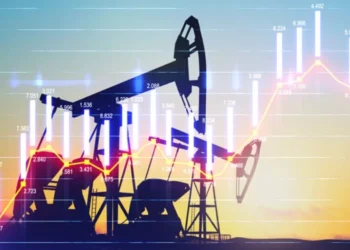In recent years, Ghana has increasingly focused on bolstering its energy security, particularly in the downstream fuel sector.
The importance of fuel security cannot be overstated, as it plays a critical role in economic growth, job creation, and the overall well-being of the population.
Given the volatility of global energy markets, the Ghanaian government is implementing strategic measures to ensure a stable, affordable, and sustainable supply of petroleum products across the country.
The Minister of Energy and Green Transition, Hon. John Jinapor, recently announced that the government is prioritizing measures to enhance downstream fuel security, stabilize the market, and strengthen regulatory oversight to protect consumer interests.
These measures form part of a broader strategy aimed at securing energy supplies, improving the financial performance of downstream operators, promoting sustainable practices, and supporting Ghana’s transition to a greener economy.
“The petroleum sector, which once showed a promising future, has retrogressed rapidly in recent years, with crude oil production dropping by over 30%.
“Exploration, appraisal, and development are at their lowest levels since 2017.”
Hon. John Jinapor, Minister of Energy and Green Transition
He emphasized the importance of securing the downstream fuel value chain, which encompasses storage, distribution, and retail operations, to ensure energy security and market stability.
The Minister also highlighted the significance of Ghana’s upstream petroleum sector to the national economy.
In 2022, crude oil contributed approximately 35% of Ghana’s foreign exchange earnings and accounted for 20% of domestic revenue. Despite its vital role, the sector faces significant challenges, and the government is committed to reversing the declining trend.
“The hard truth is that the upstream sector faces imminent collapse if the current trend is not reversed. We must create an enabling environment for investment through policy consistency, transparency, and effective regulation.”
A major component of the government’s energy security strategy involves transitioning to gas-powered electricity generation. Currently, Ghana spends about $1 billion annually on liquid fuel, and the transition to gas could lead to substantial cost savings and enhanced energy security.
Integrating Green Transition Goals

Ghana’s focus on downstream fuel security and its green transition comes at a time of increasing global energy demand and growing concerns about climate change.
The government recognizes the need to integrate renewable energy solutions into the sector to align with its broader energy transition agenda.
“Our priority is to create a stable and efficient market environment.
“We are also committed to integrating renewable energy solutions into the sector as part of our energy transition agenda.”
Hon. John Jinapor, Minister of Energy and Green Transition
Over the years, Ghana has faced numerous challenges in ensuring a stable supply of fuel. These issues include inadequate infrastructure, fluctuating global oil prices, exchange rate volatility, and insufficient storage capacity.
Furthermore, reliance on imports for a significant portion of the country’s fuel supply has made the nation vulnerable to external market shocks, such as disruptions in international shipping and changes in global demand for oil.
Through extensive consultations with stakeholders, the government plans to implement measures to stabilize fuel prices and prevent market volatility.
Additionally, investments in infrastructure improvements and strategic zonalization will be prioritized to mitigate risks associated with supply disruptions
Ghana’s downstream fuel sector remains a fundamental pillar of economic development, often referred to as the lifeblood of modern economies—driving industries, powering transportation, and shaping the geopolitical landscape.
The sector’s contribution of 8.4% to the country’s Gross Domestic Product (GDP) in 2023 underscores its critical role in fostering economic stability, creating jobs, and ensuring energy security.
As the government works towards strengthening fuel security and integrating sustainable energy solutions, stakeholder collaboration will be essential in overcoming challenges and fostering a resilient downstream fuel market.
Ensuring stable energy policies, streamlining regulations, and investing in infrastructure will be key to achieving Ghana’s long-term energy security objectives.
READ ALSO: Mahama Government Tackles NPP’s “Economic Crisis”





















